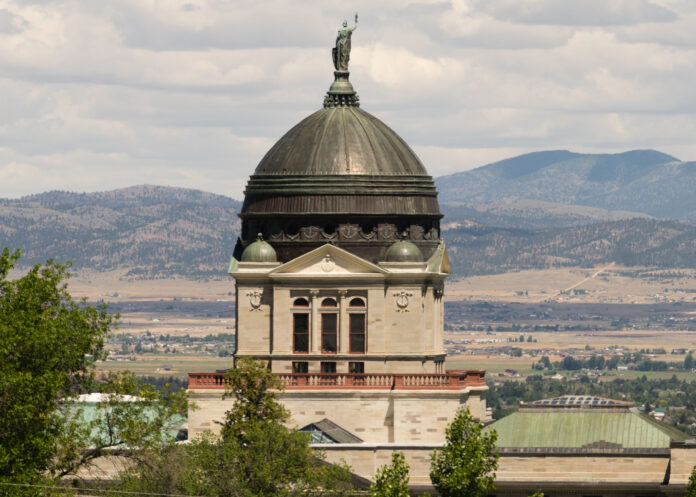State lawmakers convened for a committee meeting to address concerns regarding the role of Montana’s judicial branch, while Democratic legislators opted out of participation. Senate President, Sen. Jason Ellsworth, a Republican from Hamilton, announced the establishment of the Senate Select Committee on Judicial Oversight and Reform earlier in the month, citing a series of court rulings that, according to him, had encroached upon the Legislature’s authority. The committee’s inaugural meeting took place on Monday at the State Capitol.
“The education in the start of this, I think, is vital, for the citizens out there to understand the process, for us to understand it and for us to be effective as a committee,” Ellsworth stated.
The goal of the committee, as outlined by Republican leaders in a press release, is to draft legislation for the 2025 Legislature aimed at curbing what they perceive as the Montana courts’ overreach of power. This includes restoring a balance of power among Montana’s three branches of government, enhancing judicial oversight, fortifying legislative rules and procedures, and refining court processes for significant constitutional cases.
The committee’s formation came in response to decisions such as a district court judge’s order for a veto override poll for Senate Bill 442 and the Montana Supreme Court’s ruling that the Legislature’s handling of a bill later deemed unconstitutional demonstrated bad faith.
Jim Ramlow, an attorney from Whitefish and a public member of the committee, presented his perspectives on the Montana and U.S. Constitutions, emphasizing separation of powers and historical case precedents.
Moving forward, Ellsworth stated that future meetings will delve into more specific topics, potentially including particular cases. However, there is currently no set timeline for the committee’s report completion.
Significantly, Democratic leaders announced their refusal to engage with the committee, labeling it a “political stunt” and part of a broader trend of attacks on the judiciary. Despite Ellsworth’s offer to include three Democratic representatives as non-voting members, House Minority Leader Rep. Kim Abbott declined.
“I’m highly disappointed in the Democrats for not showing up to this meeting,” Ellsworth expressed, stressing the importance of bipartisan participation.
House Minority Leader Rep. Kim Abbott and Sen. Ryan Lynch echoed their party’s decision not to participate, citing concerns over the committee’s framework and past experiences with similar endeavors.
Democrats had previously engaged in a select committee on the judiciary from 2021 to 2022, producing a minority report when disagreements arose with Republican findings. However, Abbott highlighted frustrations with the current committee’s setup and rhetoric, leading to their decision to abstain from participation this time around.
During Monday’s meeting, lawmakers heard from Jim Ramlow, an attorney from Whitefish and one of three public members of the committee. He presented his view on the Montana and U.S. Constitutions, their frameworks for separation of powers, and how these types of cases have been handled in the past.
“Is a court that declares legislation in Montana unconstitutional overstepping its powers? Is a legislature which is discussing reform of the judiciary overstepping those powers?” Ramlow asked. “Those are serious underlying questions in a theory of government, and I’m sure that the committee will be discussing these in some detail.”
Moving forward, Ellsworth indicated that the committee would address more specific topics in future meetings, possibly including specific cases. However, he noted that there is no established timeline for when the committee might complete a report.
Overall, the committee is set to make recommendations without input from the legislative minority, as Democratic leaders made clear their intent not to participate. Despite Ellsworth’s efforts to encourage bipartisan involvement, the divide remains palpable.
By: Montana Newsroom staff




